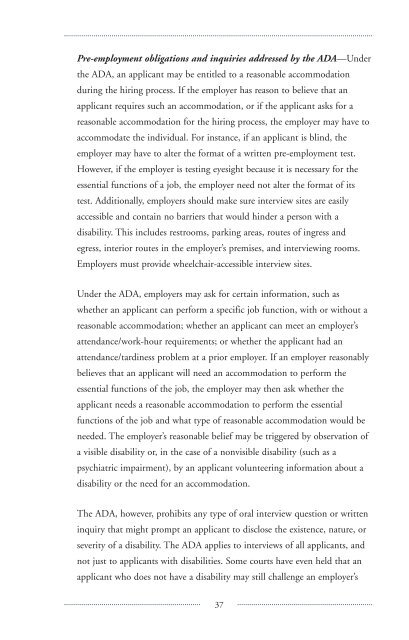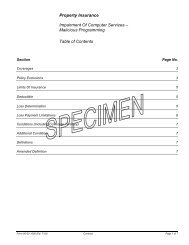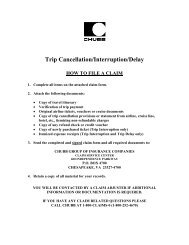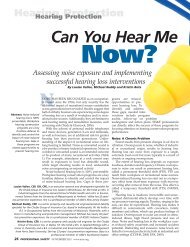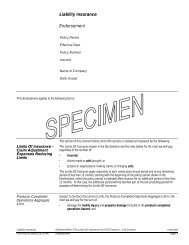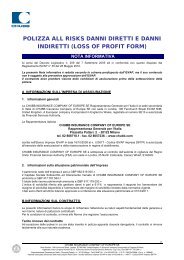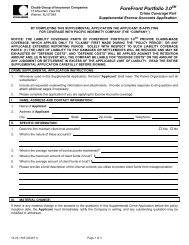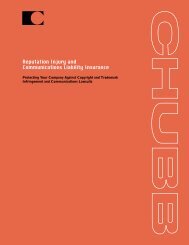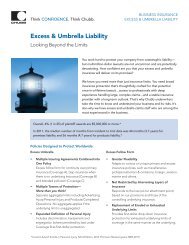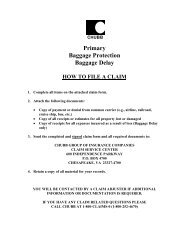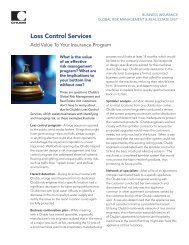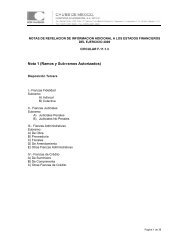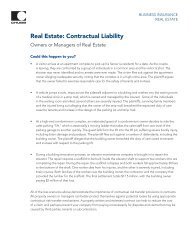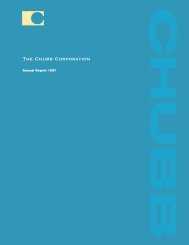Employment Practices Loss Prevention Guidelines - Chubb Group of ...
Employment Practices Loss Prevention Guidelines - Chubb Group of ...
Employment Practices Loss Prevention Guidelines - Chubb Group of ...
You also want an ePaper? Increase the reach of your titles
YUMPU automatically turns print PDFs into web optimized ePapers that Google loves.
Pre-employment obligations and inquiries addressed by the ADA—Under<br />
the ADA, an applicant may be entitled to a reasonable accommodation<br />
during the hiring process. If the employer has reason to believe that an<br />
applicant requires such an accommodation, or if the applicant asks for a<br />
reasonable accommodation for the hiring process, the employer may have to<br />
accommodate the individual. For instance, if an applicant is blind, the<br />
employer may have to alter the format <strong>of</strong> a written pre-employment test.<br />
However, if the employer is testing eyesight because it is necessary for the<br />
essential functions <strong>of</strong> a job, the employer need not alter the format <strong>of</strong> its<br />
test. Additionally, employers should make sure interview sites are easily<br />
accessible and contain no barriers that would hinder a person with a<br />
disability. This includes restrooms, parking areas, routes <strong>of</strong> ingress and<br />
egress, interior routes in the employer’s premises, and interviewing rooms.<br />
Employers must provide wheelchair-accessible interview sites.<br />
Under the ADA, employers may ask for certain information, such as<br />
whether an applicant can perform a specific job function, with or without a<br />
reasonable accommodation; whether an applicant can meet an employer’s<br />
attendance/work-hour requirements; or whether the applicant had an<br />
attendance/tardiness problem at a prior employer. If an employer reasonably<br />
believes that an applicant will need an accommodation to perform the<br />
essential functions <strong>of</strong> the job, the employer may then ask whether the<br />
applicant needs a reasonable accommodation to perform the essential<br />
functions <strong>of</strong> the job and what type <strong>of</strong> reasonable accommodation would be<br />
needed. The employer’s reasonable belief may be triggered by observation <strong>of</strong><br />
a visible disability or, in the case <strong>of</strong> a nonvisible disability (such as a<br />
psychiatric impairment), by an applicant volunteering information about a<br />
disability or the need for an accommodation.<br />
The ADA, however, prohibits any type <strong>of</strong> oral interview question or written<br />
inquiry that might prompt an applicant to disclose the existence, nature, or<br />
severity <strong>of</strong> a disability. The ADA applies to interviews <strong>of</strong> all applicants, and<br />
not just to applicants with disabilities. Some courts have even held that an<br />
applicant who does not have a disability may still challenge an employer’s<br />
37


